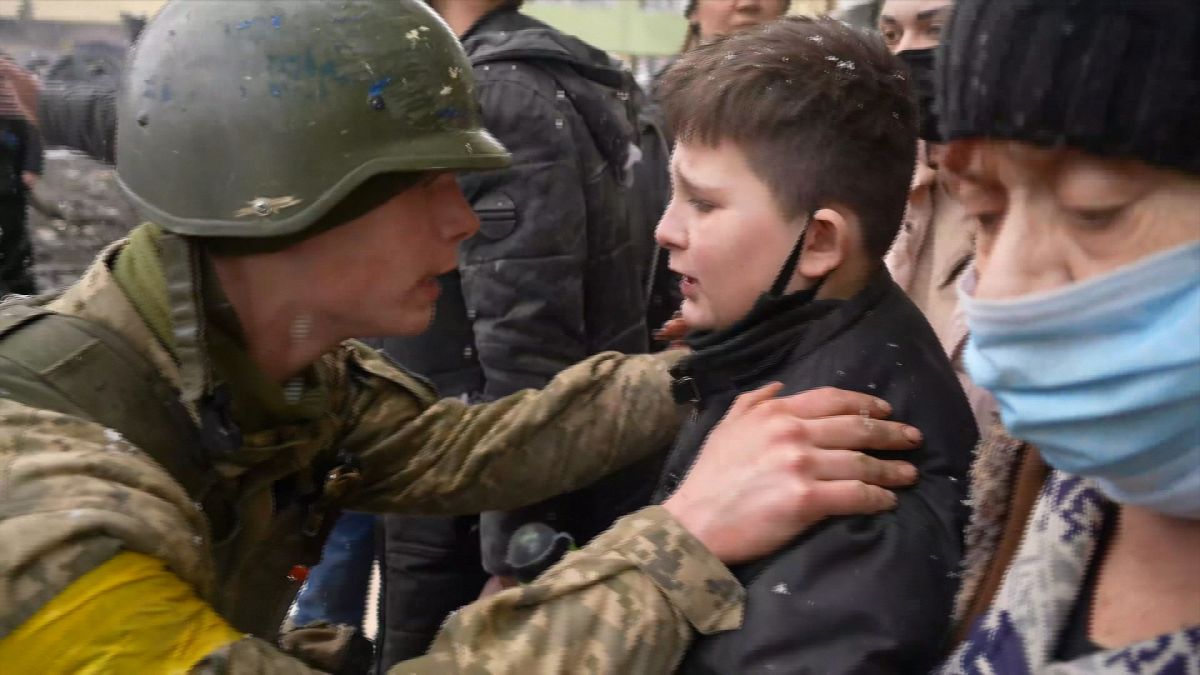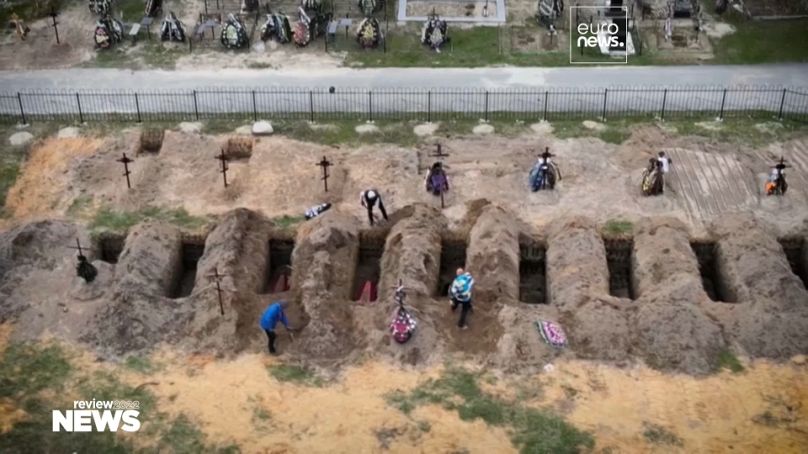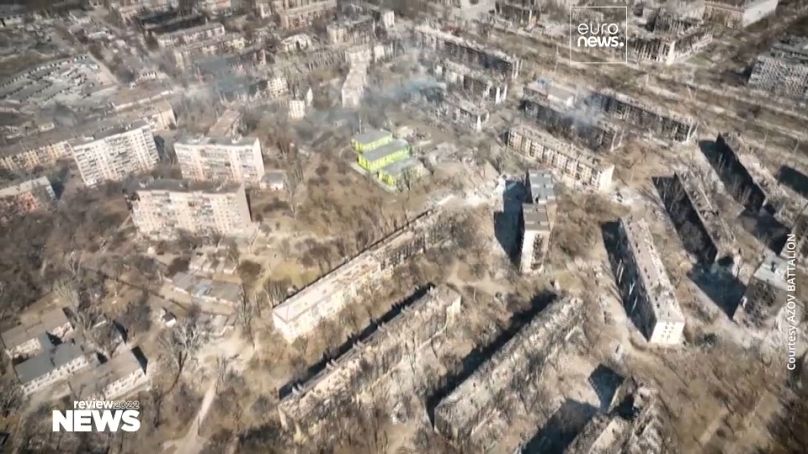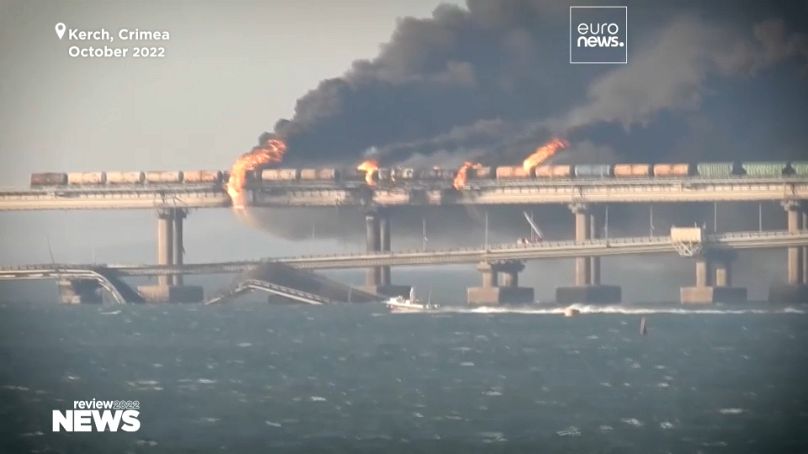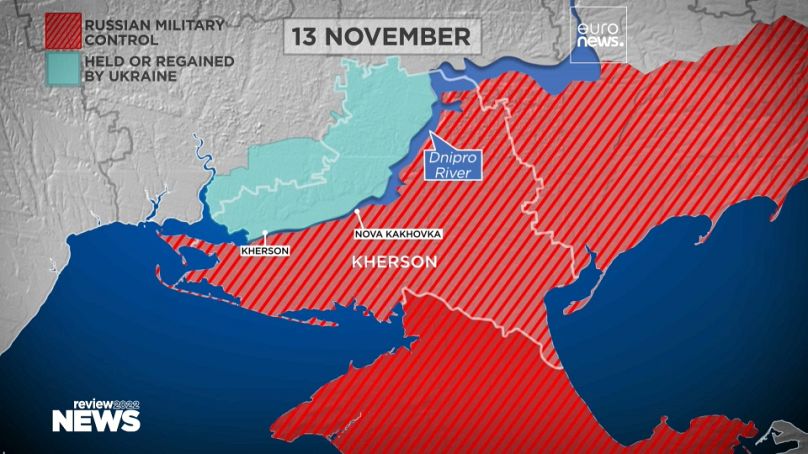Euronews takes a look back at how the war progressed in Ukraine and how it’s affected so many people’s lives since February the 24th
As 2022 comes to a close, we take a look at how the events in Ukraine unfolded after Russia invaded the country on 24 February.
Bucha, Ukraine - March
Dead bodies of civilians were found in the town of Bucha, near the Ukrainian capital Kyiv after Russian troops retreated at the end of March there. The atrocities of Bucha sparked global outrage. Russia denied any responsibility.
Ukrainian President Volodymyr Zelenskyy said that the massacre of Bucha was sadly only one example of what the occupiers committed in Ukraine.
European countries reacted by expelling Russian diplomats and in response, Moscow did the same, expelling diplomats from a number of western countries.
In April, the United Nations called for an investigation into the killing of civilians in Bucha.
In September, the UN Human Rights investigators said war crimes have indeed been committed in Ukraine. They visited 27 towns and interviewed more than 150 victims and witnesses.
Mariupol, southern Ukraine - May
In the south of Ukraine, in Mariupol, a Russian attack devastated a maternity hospital. The port city was under siege and bombed relentlessly for nearly three months. People who were trapped there said it was "hell on earth".
At the end of May, the strategically important port city fell to Russia.
Zaporizhzhia, southern Ukraine - March
In March, Russia captured the nuclear plant at Zaporizhzhia, firing on the facility. Since then Europe's largest nuclear power plant was caught several times in the crossfire. Kyiv and Moscow blamed each other.
The International Atomic Energy Agency (IAEA) warned that whoever attacked the nuclear plant was "playing with fire".
The IAEA remains there, making regular checks as it tries to prevent nuclear accidents.
Russia's mobilisation - September
In September the Russian president announced a partial mobilisation.
After Vladimir Putin's speech, Russian men fled to neighbouring countries such as Georgia to avoid being sent to the front in Ukraine. It's estimated that more than 260,000 men of military age left the country.
"At 26, I do not want to be carried home in a zinc coffin or stain hands with somebody's blood for the war of one person," explained Vsevlod who lived in Moscow and had fled to Georgia.
Kerch Bridge destroyed - October
In early October, an explosion killed four people and damaged the Kerch bridge that links Crimea, annexed by Moscow in 2014, to Russia.
It was a tactical and symbolic blow for Moscow.
Russia said it will fix the bridge and said the repairs will be completed by July next year.
Kherson region - October
Meanwhile, the Ukrainian army gained momentum and took back control of the western Kherson region. Ukrainian troops were welcomed by residents in the recaptured villages and in the city of Kherson.
The Russian retreat marked a milestone in Ukraine's pushback against Moscow's invasion.
But for the people, the respite was short-lived. Russia has intensified the shelling of Kherson during a difficult winter for areas already low on resources and power.
Ukraine's power Infrastructure hit - November
In November Russia intensified its attacks on the Ukrainian infrastructure leaving millions of people without light, heating, and water.
Russia is accused by the west of weaponising winter to wear down the Ukrainian population.
Iryna Shyrokova lived in Vyshgorod and she said it was a desperate situation.
"So many victims, so many houses ruined. People have nowhere to live, and nowhere to sleep. It’s cold."
The European Bank for Reconstruction and Development (EBRD), together with the Netherlands, said it has approved a finance package to support Ukraine's electricity transmission company, Ukrenergo, that will bring €372 million to help make fast emergency repairs and provide stability.
